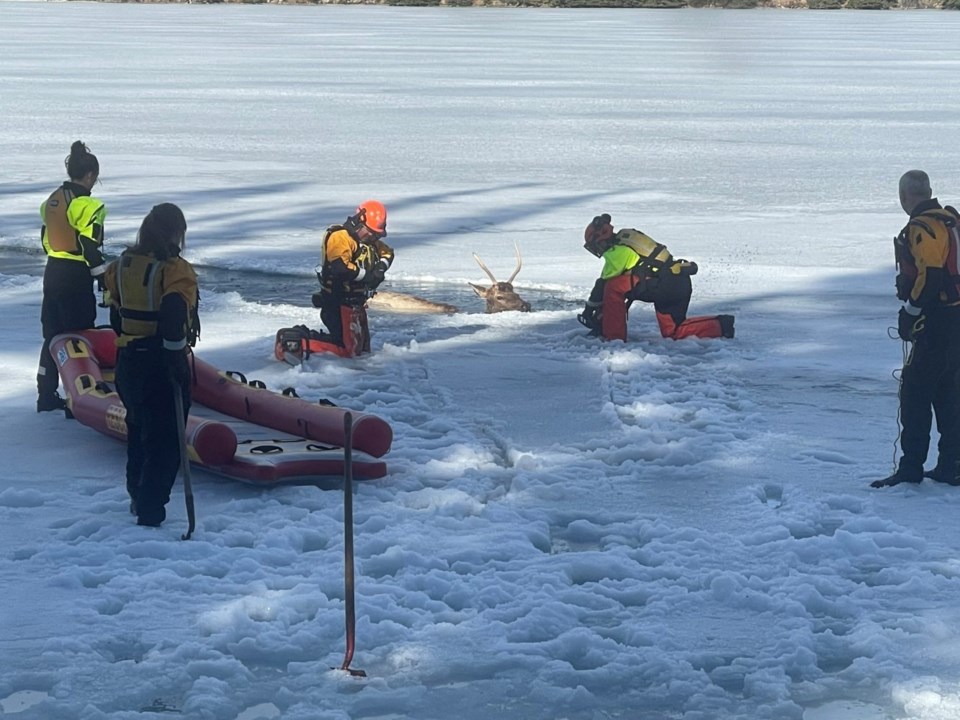Scott Hayes | [email protected]
Local Journalism Initiative Reporter
A member of the public made the right call when they phoned in an elk in distress to Jasper National Park dispatch in the early evening of April 17.
Doing so put a joint team of Parks Canada’s local Human Wildlife Coexistence and Visitor Safety staff members into action. The intrepid team of five combined their talents and wits to save the bull elk from where it went through a patch of thin ice about 20 metres out from the shore on Lac Beauvert.
“He was quite feisty when I first got there. You could see him, he was just getting more and more tired,” James McCormick, human wildlife conflict supervisor, one of the five rescuers.
The group’s first objective was to help the perhaps two-year-old elk get out on his own, which required the animal to get its hind legs on firm ground. The team carefully cut a channel through the ice from the shore toward the elk.
It immediately started trying to get through there, but it was apparent that it didn't have the power left in its legs. Various team members had received lake ice rescue and other high-risk training. They decided to try and lift the elk onto the ice using the kind of tow straps that they might otherwise employ to hoist heavy objects under a helicopter.
This meant reaching the straps underneath the elk. One of the risks of this was that they needed to get closer to the one prong “spiker” bull elk. One swift jerk of its head could have easily caused a serious injury.
Because it was so tired and moving around less due to the hypothermia and exhaustion, they deemed it safe enough to attempt. Lifting the 100 to 150 kg animal was another challenge for the team members. Luckily, he came right out, McCormick said, and they placed blankets on the beast once it was safe on the shore.
“I think it was fortuitous. We had a good crew of people,” he said.
After a while, it was able to stand and the crew gave it the space it needed to recover from the two-hour ordeal on its own.
Checking back later, they found a set of tracks off into the trees.
“You could see a little trail of blankets shaken off,” McCormick added.
Parks Canada is using this incident to thank the public for its help in keeping wildlife safe by being vigilant while outdoors and calling in trouble. It offered further tips, which included:
- Giving wildlife the space it needs to survive. Never approach wildlife in distress. This can cause further stress or harm to the animal.
- Reporting sightings of wildlife in distress to Parks Canada. If you encounter distressed wildlife, give the animal space and from a safe distance, call Parks Canada Dispatch at 780-852-6155 and follow their prompts.
- Never interfere with a rescue. Your intentions may be good, but you are putting yourself, our staff, and the animal at risk. This can heighten the animal's stress levels and be detrimental to both the wildlife and the rescue efforts.
As always, you can report all unusual wildlife encounters to Parks Canada Dispatch by calling 780-852-6155.




